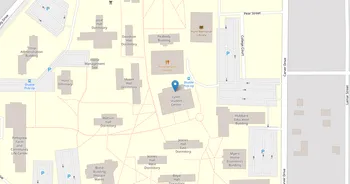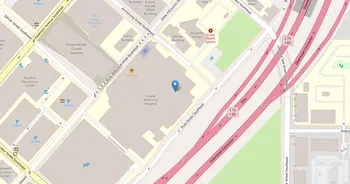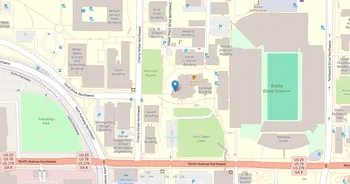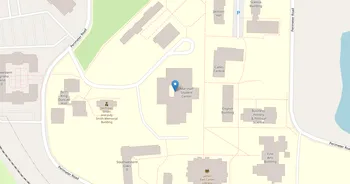Georgia Highlands College (GHC) : Overview, Courses, Scholarships & Rankings
About Georgia Highlands College
Tucked into the hills of northwest Georgia, Georgia Highlands College is part of the state's public university system and is known for practical teaching. Faculty focus on fundamentals across the arts, sciences, and career-minded fields, with attention to writing, problem solving, and projects that feel useful. The vibe is friendly, and many students balance class, work, and family.
And on the Rome campus you'll find bright classrooms and labs, a library that doubles as a study hub, tutoring, advising, and a career center with workshops and employer chats. Clubs, service projects, and intramurals keep things moving, and nearby rivers and trails offer easy escapes. Career prep runs through it all, from job-shadowing to transfer-friendly pathways. Rome's historic downtown adds coffee, internships, and learning that spills into the city.
Key Institutional Details
Contact & Profile
Academic & Institutional
Academic Programs & Fields of Study
Georgia Highlands College (GHC) offers 10 degree programs across 6 major academic fields, graduating approximately 781 students annually. The most popular fields by graduate volume are Liberal Arts (1 programs, 547 graduates), Health (4 programs, 188 graduates), Business (2 programs, 23 graduates), Security & Safety (1 programs, 20 graduates) and Natural Resources (1 programs, 2 graduates). Explore program details, award levels, and graduate demographics below.
Liberal Arts (1 programs, 547 graduates)
Liberal Arts Education, General Studies and Humanities
| Program Name | Graduates | Gender Distribution | Award Levels | CIP Code |
|---|---|---|---|---|
| Liberal Arts and Sciences | 547 |
|
Associate's
|
24.0101 |
Health (4 programs, 188 graduates)
Healthcare Professions, Medical Sciences and Clinical Practice
| Program Name | Graduates | Gender Distribution | Award Levels | CIP Code |
|---|---|---|---|---|
| Registered Nursing | 141 |
|
Associate's
Bachelor's
|
51.3801 |
| Dental Hygiene | 26 |
|
Associate's
Bachelor's
|
51.0602 |
| Health Administration and Management | 18 |
|
Bachelor's
|
51.0701 |
| Community Health Counseling | 3 |
|
Associate's
|
51.1504 |
Business (2 programs, 23 graduates)
Business Administration, Marketing and Entrepreneurship
| Program Name | Graduates | Gender Distribution | Award Levels | CIP Code |
|---|---|---|---|---|
| Logistics and Supply Chain Management | 21 |
|
Bachelor's
|
52.0203 |
| Construction Management | 2 |
|
Bachelor's
|
52.2001 |
Security & Safety (1 programs, 20 graduates)
Emergency Management, Law Enforcement and Public Safety
| Program Name | Graduates | Gender Distribution | Award Levels | CIP Code |
|---|---|---|---|---|
| Criminal Justice Administration | 20 |
|
Bachelor's
|
43.0103 |
Natural Resources (1 programs, 2 graduates)
Environmental Science and Natural Resource Management
| Program Name | Graduates | Gender Distribution | Award Levels | CIP Code |
|---|---|---|---|---|
| Natural Resources Conservation | 2 |
|
Bachelor's
|
03.0101 |
Interdisciplinary (1 programs, 1 graduates)
Cross-Disciplinary Studies and Integrated Research Programs
| Program Name | Graduates | Gender Distribution | Award Levels | CIP Code |
|---|---|---|---|---|
| Financial Analytics | 1 |
|
Associate's
|
30.7104 |
Tuition, Fees & Estimated Costs
Overview of tuition rates, housing, and other annual education expenses for undergraduate and graduate students
Financial Aid & Student Support
Summary of scholarships, grants, student loans, and financial aid statistics for undergraduate students
Student Success Metrics
Graduation rates and post-graduation earnings to help assess student outcomes and long-term value of education.
Loan Burden & Repayment Outcomes
Breakdown of loan repayment rates and student debt levels by income and dependency status.
Frequently Asked Questions
Find answers to the most common questions about Georgia Highlands College (GHC)
How much does it cost to attend Georgia Highlands College (GHC)?
The annual tuition at Georgia Highlands College (GHC) is $2,944 for in-state students and $9,296 for out-of-state students. When including room and board, books, and other expenses, the total estimated cost is approximately $4,144 for in-state students and $10,496 for out-of-state students. Additional costs include room and board $10,000 (off-campus) and books and supplies $1,200.
Data based on IPEDS program completions for 2022-2023 academic year. Tuition and cost estimates are approximate and may not include all fees, personal expenses, or transportation costs.
What academic programs and degree levels does Georgia Highlands College offer?
Georgia Highlands College (GHC) offers 10 academic programs across 6 major fields of study, with available degree levels: Associate's, Bachelor's.
Most popular program areas include:
- Liberal Arts Education, General Studies and Humanities (1 programs)
- Healthcare Professions, Medical Sciences and Clinical Practice (4 programs)
- Business Administration, Marketing and Entrepreneurship (2 programs)
- Emergency Management, Law Enforcement and Public Safety (1 programs)
- Environmental Science and Natural Resource Management (1 programs)
Data based on IPEDS program completions for 2023-2024 academic year. Numbers reflect programs where students graduated, not all offered programs.
What financial aid and scholarships are available at Georgia Highlands College?
Georgia Highlands College (GHC) provides financial aid to 15% of first-time, full-time students, with average grants of $5,535 and average loans of $4,894.
Average financial aid amounts by type:
- Pell grants: $5,631
- State/Local grants: $2,625
- Institutional grants: $2,663
- Federal loans: $4,894
The university supports 549 students with grants and 98 students with loans annually.
Data based on IPEDS for 2022-2023 academic year. Financial aid amounts and percentages may vary by program, enrollment status, and individual circumstances.
What is the average salary for Georgia Highlands College graduates?
Georgia Highlands College (GHC) graduates earn a median salary of $37,516 after 6 years and $43,184 after 10 years.
The salary range 10 years after graduation spans from $25,592 (25th percentile) to $65,191 (75th percentile), with top earners reaching $68,500 (90th percentile).
Data based on IPEDS for 2022-2023 academic year. Salary data reflects graduates who received federal financial aid (approximately 60% of all graduates). Actual earnings may vary significantly based on program, location, and individual circumstances.
Related Universities




Found something useful? Help others discover it too! Share with friends, on social media, or save for later - every share helps someone find the information they need.